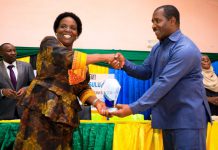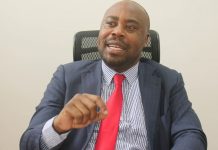AfricaPress-Tanzania: THE first secondary school with friendly infrastructure and equipment for able-bodied and disabled students has opened its doors after the government pumped 3.6bn/- into its construction.
Constructed under the Education Programme for Results (EP4R) across two years, Patandi Secondary School has admitted 143 form one students this year; with 93 being a special needs selection.
Gerald Mweli, the Deputy Permanent Secretary in the President’s Office (Regional Administration and Local Governments), said the school is unique since it offers comfort to able-bodied and learners living with various forms of disabilities.
“It is a secondary school like no other in our country; pathways, classrooms as well as dormitories have been designed to accommodate learners with disabilities,” he said.
Janeth Mollel, the school’s headmistress said the 143 admitted students have reported and have been learning for two weeks now.
“We admitted the special needs students from all over the country and so far so good,” she said.
The school has capacity to admit of 600 students, of whom 416 would be lodged at the school, she said.
“We have students with all forms of disabilities and that is why some of our dormitories are self-contained for the convenience of disabled occupants,” she elaborated.
The school is aptly located near the Patandi Teachers’ College for Special Needs Education, the only college in Tanzania that offers this kind of education at higher diploma level.
“The instant chemistry between students and teachers is amazing; they eat and play together as if they have been living together for years,” the headmistress enthused.
The United Nations Educational, Scientific and Cultural Organization (Unesco) says inclusive education is the most effective way to give all children a fair chance to go to school, learn and develop the skills they need to thrive.
“It means all children in the same classrooms, in the same schools. It creates real learning opportunities for groups who have traditionally been excluded – not only children with disabilities, but speakers of minority languages too,” it affirms in a recent report..
“Nearly 50 per cent of children with disabilities are not in school, compared to 13 per cent of their peers without disabilities. Robbed of their right to learn, children with disabilities are often denied the chance to take part in community activities, in the workforce or contribute to decisions that mostly affect them,” the agency elaborates.
An estimated 93 million children worldwide live with disabilities. “Like all children, children with disabilities have ambitions and dreams for their future. Like all children, they need quality education to develop their skills and realize their full potential,” the report underlined.





